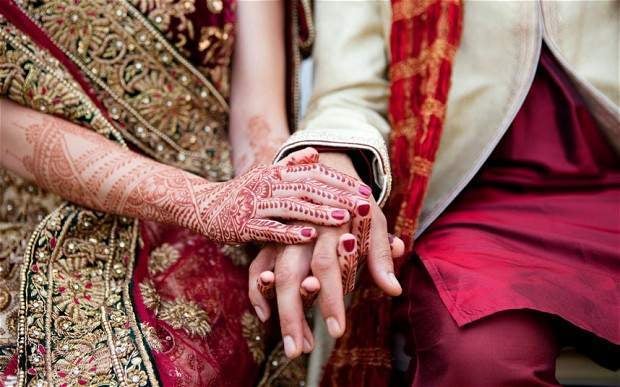

Although ‘Lights, camera, action’ is often synonymous with the bright lights of Hollywood, the accolade of being the world’s largest film industry now belongs to the Indian film industry, often referred to as ‘Bollywood’. This is hardly surprising given that India is the world’s third largest economy and home for around 400,000 millionaires.
A classic Bollywood film is typically a ‘boy meets girl’ romance with star-crossed lovers, angry parents, love triangles, and lavish weddings. But, in a case of life imitating art, what could the end of a romance mean financially for wealthy families of Indian origin living in England?
Lavish weddings are not just reserved for Bollywood royalty such as film star favourite Asin Thottumkal and businessman Rahul Sharma, who recently tied the knot. According to Alex Kuruvilla of Condé Nast India, the average Indian spends a staggering one-fifth of the wealth accumulated in his lifetime on a son or daughter’s wedding, with the average Asian wedding in the UK costing more than double that of the average British wedding. There is also a longstanding tradition that the bride’s father pays for the cost of a wedding.
Indian v English divorce law
When it comes to divorce, India’s legal system is ultimately derived from the same system as England and Wales, but while they share many common principles there is a fundamental difference between the two countries. In England, there is one law governing the breakdown of a marriage regardless of your religion, whereas in India the applicable divorce law can differ depending on whether you are Hindu, Sikh, Jain, Christian or Muslim.
In England and Wales, most petitions for divorce rely on one spouse’s ‘unreasonable behaviour’. Parties to a divorce often take comfort in the knowledge that the divorce papers are entirely private and (save for the pronouncement of the final decree of divorce) are not accessible by the public. Similarly, it can be a relief when parties realise that divorce can be dealt with amicably between husband and wife, without the need for involvement from wider family members.
Can marriage costs be recovered?
When it comes to the financial consequences of a marriage breaking down, questions are often asked about the possibility of recovering the costs of the wedding itself, the attendant gifts of jewellery, and cash and contributions to the purchase of a home for the newlyweds.
Contrary to commonly held belief, the costs of a wedding are not something which can be recovered in the event of a divorce, unless by agreement between the parties.
In terms of wedding gifts, there is no presumption that wedding gifts (either cash or chattels) are given jointly and the court has discretion to decide how the property and finances are dealt with. Although the law recognises that property given at the time of a wedding to one or other of the parties may become joint property, if there is no clear intention or conduct showing how the property was to be dealt with, the court can assume that money and gifts in kind given by one side of the family were intended for the husband and those from the other side intended for the wife.
Diamonds (and gold) are a girl’s best friend
The treatment of wedding jewellery upon divorce is always a hot topic for debate. India is the world’s biggest consumer of gold, driven in large part by the jewellery market. High-end weddings often have a budget of around $200,000 for jewellery alone and it is traditional for an Indian bride to receive gold ‘sets’ from both her own and the groom’s family. Gold is often regarded as the most valuable gift that can be received because its worth appreciates over time (unlike Villeroy & Boch crockery).
An engagement ring shall be presumed to be an absolute gift unless it was given on the condition that it is returned if the marriage does not take place. Generally, unless it can be demonstrated clearly that the parties intended otherwise, a woman’s jewellery is hers to keep regardless of whether it was bought or gifted to her. It can arguably be ‘left out of the equation’ entirely if it was a gift from a third party. That said, where the value is substantial and realisable, the parties’ needs may not permit such an approach.
Gifts of cash can be more readily assumed to be joint gifts as are contributions towards the purchase of a home for the newlyweds. Property inherited solely by one party, whether obtained before, during or after the marriage has broken down is more likely to be left out of the ‘pot’ when it comes to a division of assets. But such property may have become mingled during the marriage to benefit both parties – for example, the purchase or improvement of a family home.
Ultimately, each case must turn on its own unique set of facts, with the courts trying to achieve a result which is fair for both parties. Increasingly though, the court will take into account the cultural aspects and implications of a marriage. Where the parties originate from a foreign cultural background, it may be appropriate for the court to have regard to their common cultural values. Such moves are likely to be a developing theme in the case law, given the multi-cultural and multi-faith society in which the law is now applied.
Kate Molan is an associate and James Stewart a partner in Pennington Manches LLP’s family team.






